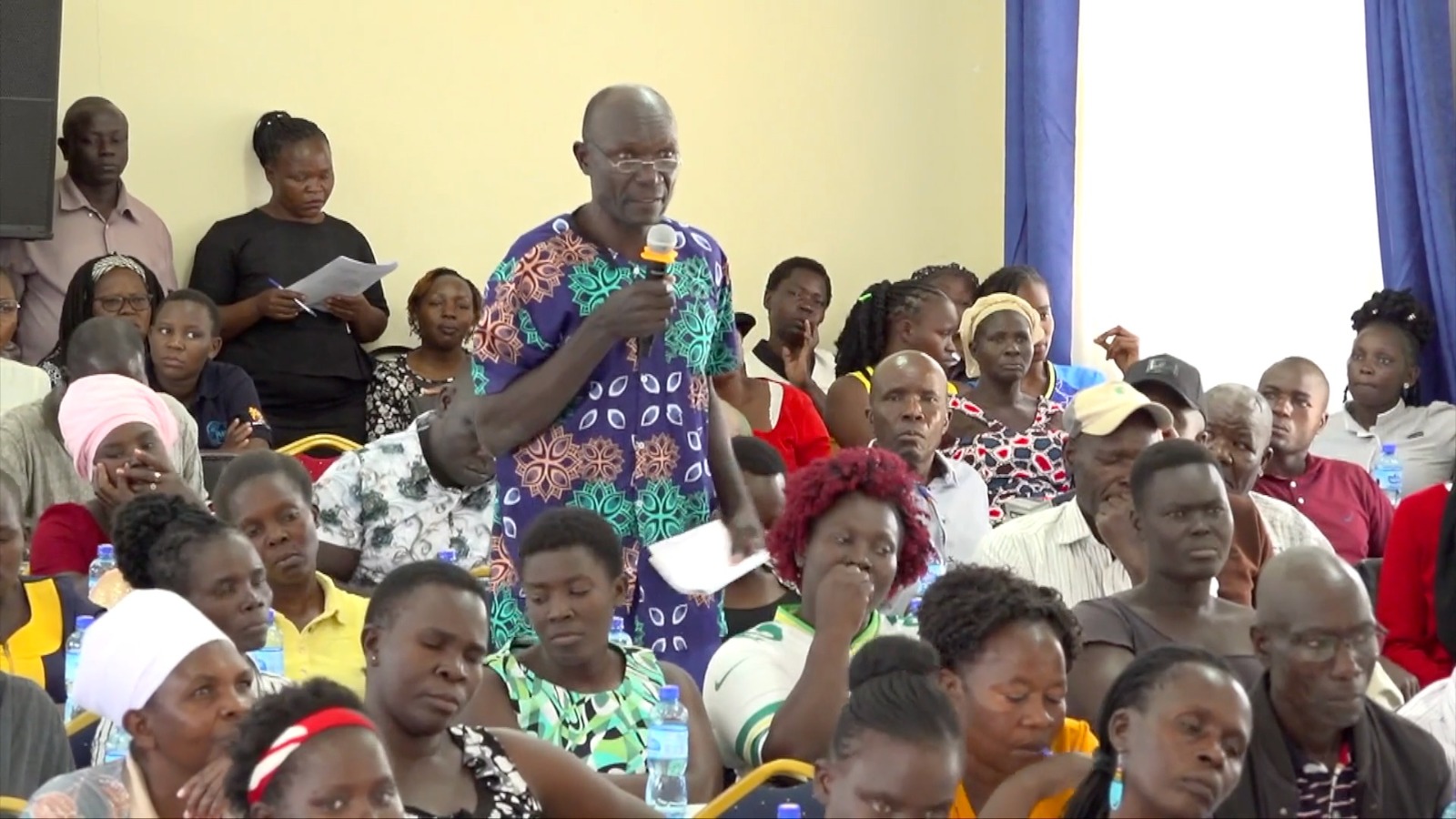
 Ogal Beach BMU member Victor Okul speaks during a public participation session in Kisumu convened by the National Assembly’s Departmental Committee on Blue Economy/FAITH MATETE
Ogal Beach BMU member Victor Okul speaks during a public participation session in Kisumu convened by the National Assembly’s Departmental Committee on Blue Economy/FAITH MATETE
The Kenya Fisheries Management and Development Bill, 2023, is facing growing opposition from stakeholders who argue it fails to address the realities of the country’s dynamic fisheries, aquaculture and blue economy sectors.
During a public participation
session in Kisumu, convened by the National Assembly’s Departmental Committee
on Blue Economy, investors and experts criticised the Bill as outdated and
ill-suited for a rapidly changing industry.
The Lake Victoria Aquaculture
Association (LVA) led the call for the draft law to be withdrawn, describing it
as a recycled version of the Fisheries Management and Development Act of 2016.
According to LVA board secretary
Pete Ondeng, the Bill overlooks significant changes over the past seven years,
especially in aquaculture, which is widely seen as the future of fish
production in Kenya.
"This Bill mirrors the 2016 Act yet
ignores advances in technology, global standards and market trends.
Aquaculture is barely recognised despite its central role in Kenya’s food
security and commercial growth," he told the committee.
Ondeng also questioned why Parliament
was leading the legislative process without adequate involvement from the
Ministry of Mining, Blue Economy and Maritime Affairs, which holds the
constitutional mandate for policy and regulatory development.
"It is like drafting a health
law without input from the Ministry of Health. Parliament should not take the
lead role while the ministry stays on the sidelines," he said.
Ondeng warned that grouping
aquaculture under a general fisheries framework without a clear growth strategy
risks undermining the sector’s commercial potential. He called for a new,
inclusive process led by the ministry to create forward-looking legislation
tailored to aquaculture and the wider blue economy.
Kakamega county director of fisheries Jonathan Masaba supported this view, noting that inland aquaculture, which has grown rapidly, is largely overlooked.
He said public forums have mostly focused on lake and riverine regions, excluding key fish-producing counties like Kakamega.
Masaba proposed separate laws to guide aquaculture,
inland fisheries and farm-based fish production.
Beach management units on
Lake Victoria also sought recognition in the Bill, with representative Victor
Okul from Ogal Beach insisting that BMU leaders, who are vital for regulation
and conservation, should receive stipends.
In response, committee vice chairperson and Kuria East MP Marwa Kitayama assured stakeholders that their feedback would shape the final draft.
He announced the committee would hold additional forums in Siaya, Migori, Homa Bay, Naivasha and coastal counties before compiling its report.
"Fish stocks in Lake Victoria
continue to decline due to illegal fishing and destructive gear. That is a
major threat to food security, and this Bill seeks to confront such
challenges," Kitayama said.
Kenya consumes about 600,000 tonnes of fish annually but produces less than half of that, relying heavily on imports, mainly from China.
With natural fish stocks diminishing, stakeholders are firm that aquaculture remains the country’s best hope for sustainable fish production and long-term blue economy growth.



![[PHOTOS] China holds massive parade to mark 80th anniversary of WWII](/_next/image?url=https%3A%2F%2Fcdn.radioafrica.digital%2Fimage%2F2025%2F09%2Fbd5dfa7a-3a06-486e-b6b0-6b032c0ffc73.jpg&w=3840&q=100)









